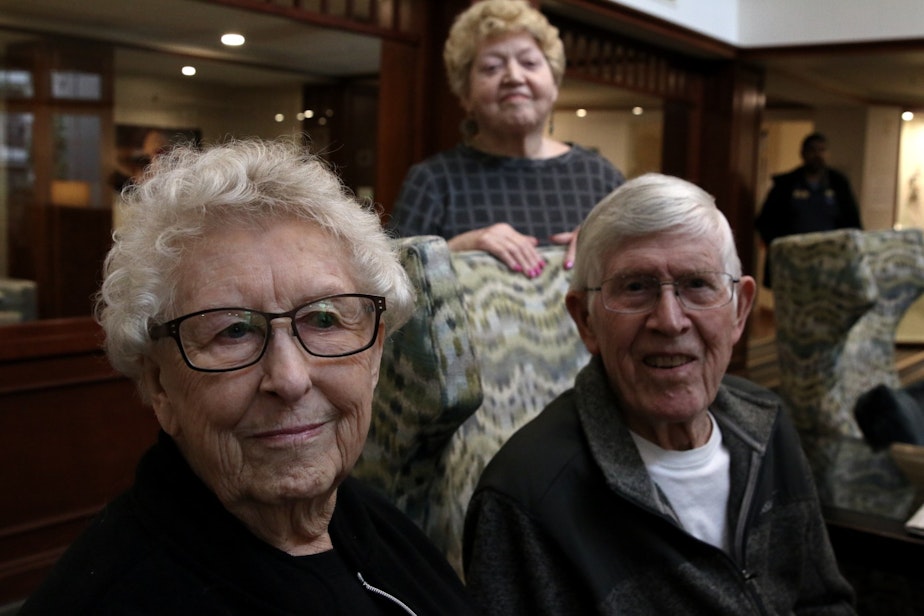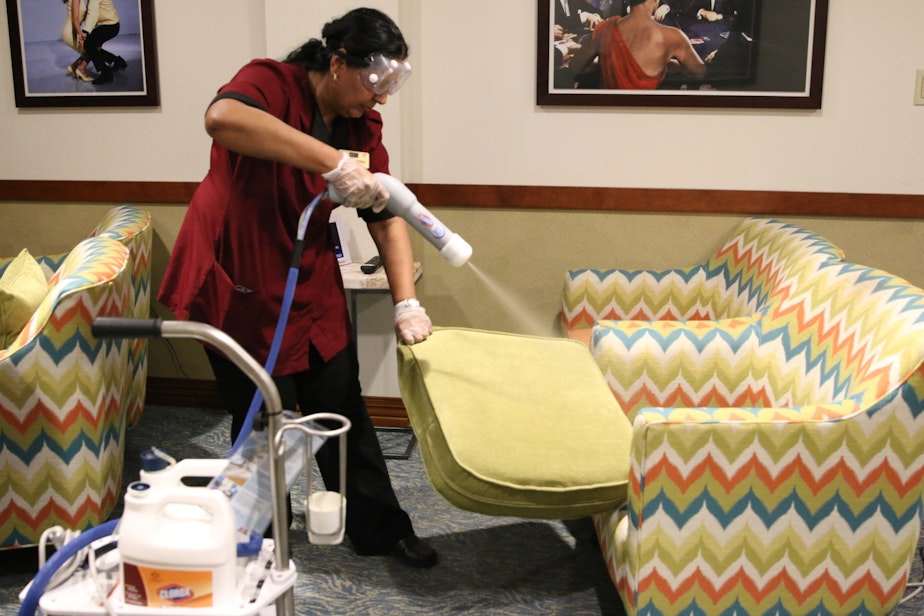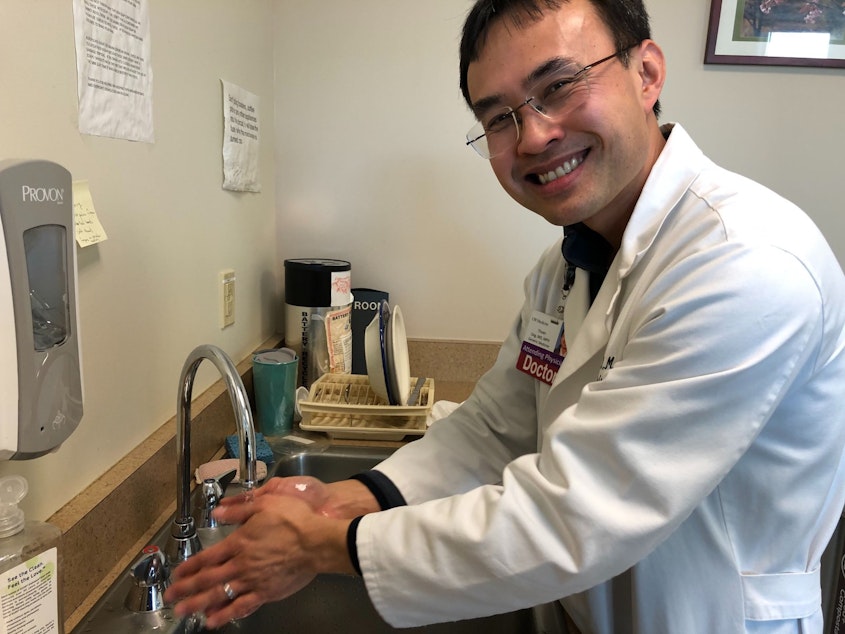Retirement homes shore up defenses against coronavirus

The spotlight on COVID-19 deaths associated with Life Care Center in Kirkland has Seattle-area nursing homes, retirement homes, and assisted living facilities trying to keep the virus out.
Older people are at higher risk because they have more chronic conditions that complicate their body’s effort to fight the virus.
The Lakeshore retirement home is on the border of Seattle and Renton and is one such facility preparing to fend off COVID-19.
Albert Munanga is in charge of keeping the virus out of The Lakeshore, and a few other places too. Munanga has been preparing for this battle for a long time. He has a masters in nursing, and he’s a doctor of behavioral health.
At every retirement home, nursing home, and assisted living community in Washington state, there’s someone making decisions like this.
Munanga said The Lakeshore's defenses begin when visitors approach the front desk. “Before they are allowed to proceed to interact with our residents and with our staff, we’re asking questions.”
Sponsored
I was screened by receptionist Anescia Gallardo, who asked me:
- “Do you have any symptoms including fever, cough, and shortness of breath?”
- “OK, have you visited China, South Korea, Italy, Iran, or Japan recently?"
- "Have you visited the Life Care Center of Kirkland?"
After passing, I signed in and received a sticker that identified me as cleared. While I was there, one woman was turned away because she’d had a four hour layover at a Japanese airport.
No screening process is perfect. So Munanga said there’s second line of defense -- disinfectant. Housekeeping staff wipe down surfaces. And they spray furniture with an atomized bleach solution using a machine called the Clorox 360.

Sponsored
There’s a third line of defense, too.
“For those that have any kind of symptoms -- not just coronavirus symptoms, but even ordinary cold symptoms -- we're asking that they self-isolate and remain in their apartments," Munanga said.
But the management at this place can only do so much. It needs the help of residents, too.
Which brings us to The Lakeshore’s secret weapon: Transparency.
Kathie Harris is a 75 year old resident. She pulled out some pieces of paper to show me. It was an update on the virus she received from managers here.
“And it’s very comprehensive, as you can see," she said. “We have been getting daily bulletins for the last four or five days about the virus.”
Harris digested the information and made a decision.
“I told my daughter today that although I want my grandkids to come over, I don’t think it’s such a good time for them to be coming over.”
Sponsored
“How hard is it not to see them as frequently?” I asked.
“Oh, well, that’s always hard, but my granddaughter and I text all the time," she said. " My grandson reads his texts ... but he doesn’t respond. So that’s difficult.”
All over this community, people are weighing the risks. Like Leonard Root, who introduced himself this way: "I'm 95 years old and I'm still alive."
Root says he’s still attending church on Sundays, but he’s being very careful.
I’m following the directions of our leader of this domicile," he said. "And that means washing my hands frequently.”
Dr. Thuan Ong is an associate professor at the University of Washington with a specialty in geriatric medicine.
I visited him at Harborview Medical Center and asked about The Lakeshore Retirement Community's approach. He said he found their approach "perfectly reasonable."
Sponsored

Dr. Ong said he likes the screening, the wiping down of surfaces, the isolation of people with symptoms.
He said he hasn’t seen any science supporting the effectiveness of the Clorox360 sprayer on soft furniture. Wiping hard surfaces with disinfectant is the proven method, he said.
Regarding screening, he said some communities have gone further, barring all visitors, but he said that's a decision best left to the facility's management, as they know the residents and their level of risk best.
Dr. Ong really likes that staff at The Lakeshore are trying to be transparent with residents.
“Every individual is assessing the true risk, but having that information, I think, is very critical,” he said.
That's because good information turns residents into allies in the battle to keep the virus out, so that they can be the ones to deliver the tough message to their loved ones, put this way by 89-year-old Lakeshore resident Janie Cromwell: “If they have any sickness, they shouldn’t come near us.”




